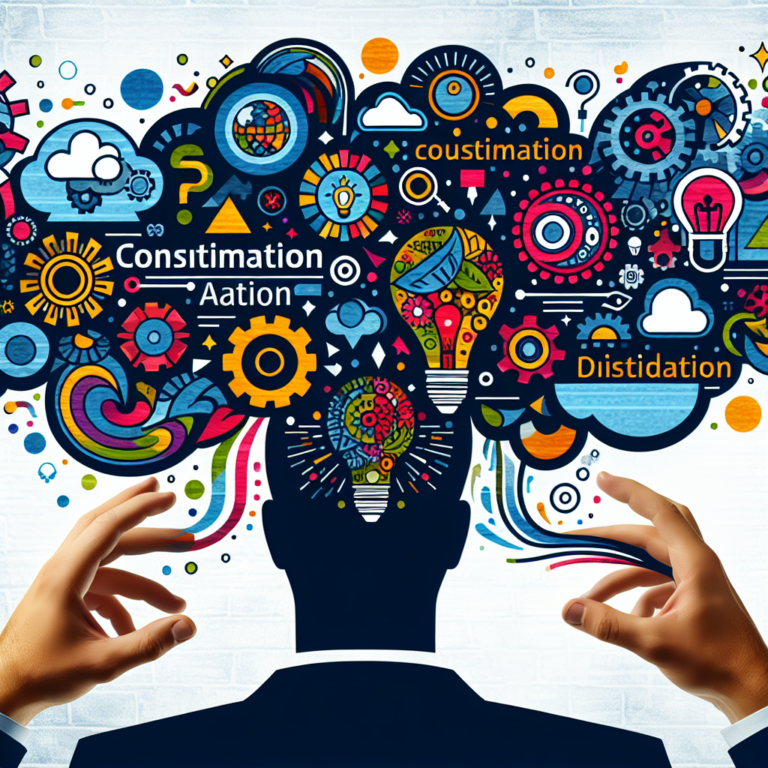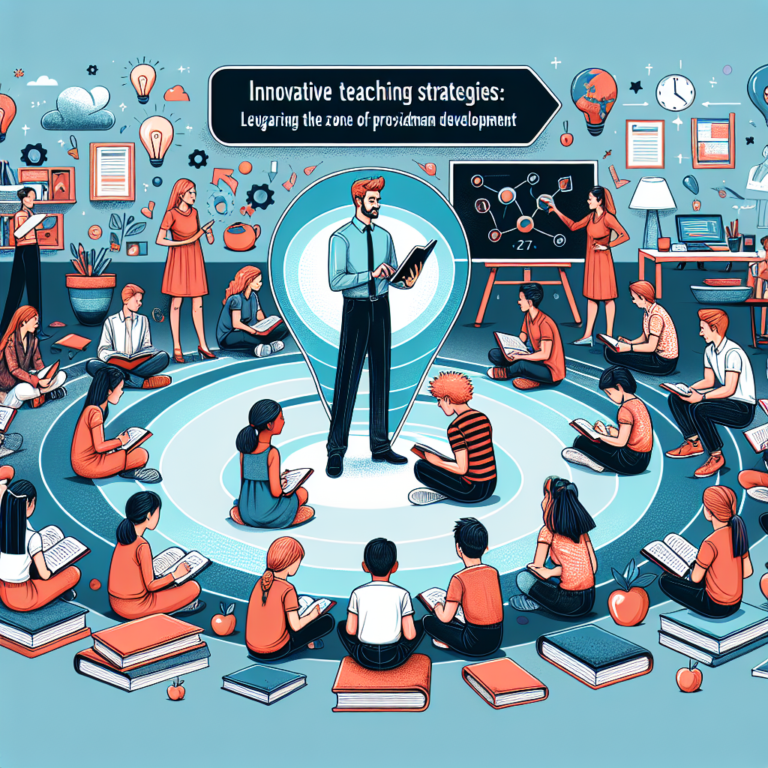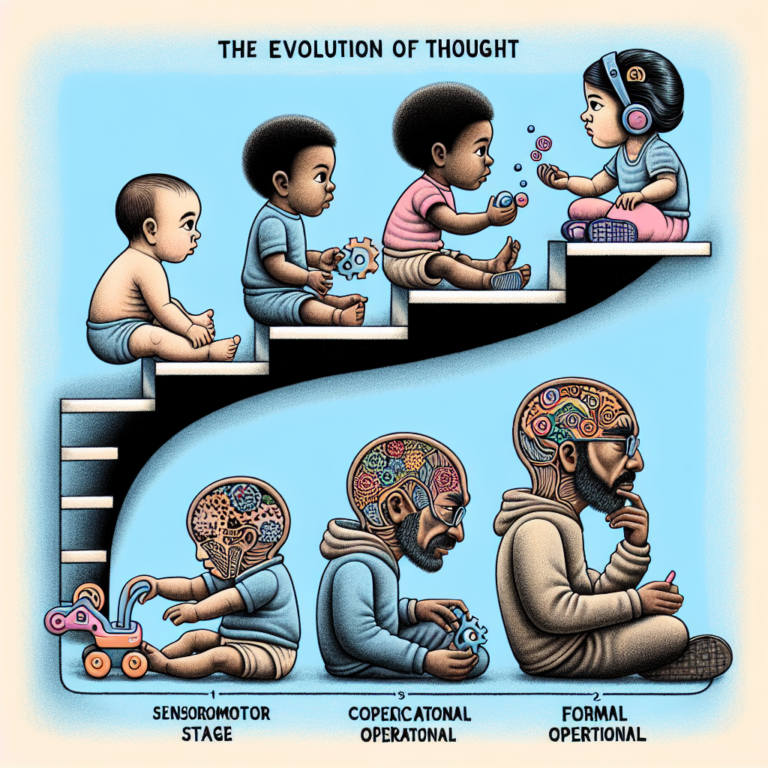
Introduction
Imagine you’re preparing for an important exam. You study hard, reviewing notes and practicing problems. But what if I told you that the key to mastering this material isn’t just about how much time you spend studying? Enter metacognition—the awareness and understanding of one’s own thought processes. In today’s educational landscape, understanding metacognition is more essential than ever. It empowers learners to become self-regulated, reflective, and adaptable, enhancing both academic performance and lifelong learning. In this article, we’ll explore the depths of Understanding Metacognition: Insights from Psychology and Education, examining its principles, strategies for application, and its profound effects on learning and teaching.
What is Metacognition?
Definition and Components
Metacognition is often defined as “thinking about thinking.” It comprises two key components:
- Metacognitive Knowledge: What we know about our own cognitive processes.
- Metacognitive Regulation: The processes we use to control our own learning.
These components together allow individuals to plan, monitor, and evaluate their learning strategies effectively.
Importance of Metacognition
Understanding metacognition is critical in both psychology and education because it can enhance learning outcomes significantly. Research shows that students who engage in metacognitive practices score higher academically. They are not only aware of what they know but also recognize what they don’t know, allowing them to focus on areas needing improvement.
The Science Behind Metacognition
Metacognition in Psychology
Psychological research has explored metacognition extensively. Studies reveal that metacognitive awareness can influence decision-making processes, problem-solving, and even emotional regulation. A classic study by Flavell (1979) proposed that individuals with higher metacognitive awareness are better equipped to tackle complex tasks.
Case Study: Flavell’s Research on Metacognitive Awareness
In Flavell’s experiments, subjects displayed varying levels of metacognitive awareness during problem-solving tasks. Those with higher metacognitive insight not only excelled but also demonstrated improved strategies in addressing confounding issues. This illustrates the first point: higher metacognitive awareness directly correlates with enhanced cognitive task performance.
Metacognition in Education
Fostering metacognitive skills in educational settings promotes deeper learning. When students reflect on their learning strategies, they can adapt their methods for better results. According to research from the Journal of Educational Psychology, students who received explicit instruction on metacognitive strategies showed significant improvement in comprehension and retention.
Table 1: Benefits of Metacognitive Strategies in Education
| Metacognitive Strategy | Benefit |
|---|---|
| Self-Monitoring | Increases awareness of strengths and weaknesses |
| Goal Setting | Promotes focused learning objectives |
| Reflection | Enhances critical thinking and retention |
Practical Strategies for Developing Metacognitive Skills
1. Teaching Self-Monitoring
Encourage learners to regularly assess their understanding and the effectiveness of their learning strategies. They can ask themselves questions such as, “Do I understand this concept?” and “What strategies have worked for me in the past?” This self-questioning technique is vital in Understanding Metacognition: Insights from Psychology and Education.
2. Incorporating Reflection
After completing a task, students should reflect on their performance. This could involve keeping a learning journal where they write about what strategies worked, what didn’t, and why. Such reflection not only reinforces memory but also guides future learning efforts.
Case Study Example: Reflection Logs in a High School Setting
In a high school pilot program, teachers introduced reflection logs to English literature classes. Students were asked to document their comprehension of reading material and evaluate their understanding. The findings showed a 30% improvement in test scores among those who routinely used reflection logs compared to those who did not.
3. Goal Setting and Planning
Set specific, measurable, achievable, relevant, and time-bound (SMART) goals. By outlining clear objectives, students can better monitor their progress. This method is supported by psychology’s goal-setting theory, which correlates goal clarity with enhanced motivation and achievement.
Challenges in Implementing Metacognition
While the advantages are clear, some challenges remain. Many students lack awareness of their thought processes. Additionally, they may feel overwhelmed when reflecting on their learning strategies. Educators must create a supportive environment where students feel safe to explore these feelings.
Overcoming Resistance to Metacognitive Practices
A significant barrier to implementing metacognitive strategies can be students’ resistance to change. Some may view self-reflection as unnecessary or time-consuming. To mitigate this, educators can emphasize the long-term benefits of developing metacognitive skills for academic success and life beyond school.
Case Studies Highlighting Successful Metacognitive Practices
1. Adult Learning Programs
An adult education program focused specifically on metacognitive strategies reported that participants became more engaged and proactive in their learning habits. They were encouraged to set personal learning goals and reflect on their progress. Survey results revealed that 85% of participants felt their learning efficiency improved.
2. College-Level STEM Courses
In a university STEM course, instructors integrated metacognitive strategies into the curriculum. They taught students how to evaluate their problem-solving approaches and adjust them accordingly. Final exam results showed that students who applied metacognitive techniques had a 40% higher success rate compared to those who did not.
Conclusion
Understanding metacognition is not just a trend in psychology and education; it’s a transformative skill that can enable individuals to take control of their learning processes. By cultivating metacognitive strategies, educators and learners alike can unlock potential that fosters academic success and personal growth. Whether it’s through reflective practices, goal setting, or self-monitoring, the journey to mastering metacognition is a valuable endeavor.
Ready to apply these insights? Start by implementing small changes in your study habits or teaching methods today. Cultivate a mindset of reflection and awareness, and watch as your learning and teaching reach new heights.
FAQs
1. What is metacognition?
Metacognition refers to the awareness and regulation of one’s own thought processes. It involves understanding how we learn and applying strategies to enhance our learning experiences.
2. How can metacognition improve academic performance?
Engaging in metacognitive practices leads to better self-awareness of strengths and weaknesses, allowing students to adopt more effective learning strategies, ultimately resulting in improved academic performance.
3. Can metacognitive skills be taught?
Yes, metacognitive skills can be taught explicitly through techniques such as goal setting, self-monitoring, and reflection. Educators can foster these skills in their students through structured activities.
4. What are some common metacognitive strategies?
Common metacognitive strategies include self-questioning, reflective journaling, goal setting, and peer teaching. These techniques encourage learners to think critically about their learning processes.
5. How can I start developing my metacognitive skills?
Begin by regularly assessing your learning strategies and outcomes. Keep a journal to reflect on what works and what doesn’t, and set specific, measurable goals for improvement.
By focusing on the multifaceted realm of Understanding Metacognition: Insights from Psychology and Education, this article has strived to illuminate the rich, transformative potential of metacognition in fostering a more profound understanding of learning. Let this be your guide to practicing metacognition, and encourage others to join you on this enlightening journey!














